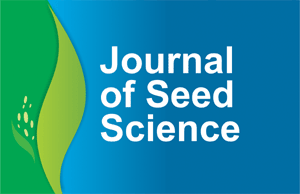Several plant species have development limitations on saline soils; however under water stress situations salicylic acid (SA) may have defense function by acting as antioxidant. Thereby, this study was aimed at analyzing physiological changes occurring in maize seeds treated with SA and germinated on sodium chloride moistened substrate; as well as assessing the effect of antioxidant enzymes produced by the seedlings. To this, seeds were soaked into zero and 1 mM SA solutions, for 60 min., and germinated on different NaCl concentrations (0, 30, 90, and 180 mM), and afterwards evaluated for germination, germination speed index, initial growth, and effect of antioxidant enzymes on seedlings. For electrical conductivity test, the seeds were previously soaked in NaCl solutions with and without SA. The SA application has minimized damages induced by salt stress to maize seed germination by favoring their germination percent; however without SA was not able on maintaining seed viability over 90 mM. Seedling initial growth was impaired by increasing NaCl concentrations in substrate; and electric conductivity has shown low values for release of solutes in the presence of SA. Activity of antioxidant enzymes has increased until 30 mM NaCl concentration; however above such concentration activity of these enzymes was reduced. The SA maintains germination of corn seeds above 90 mM NaCl; however, generally it is not efficient to ensure vigor of seedlings.
Zea mays; antioxidant enzymes; NaCl; seed viability; seedling growth
